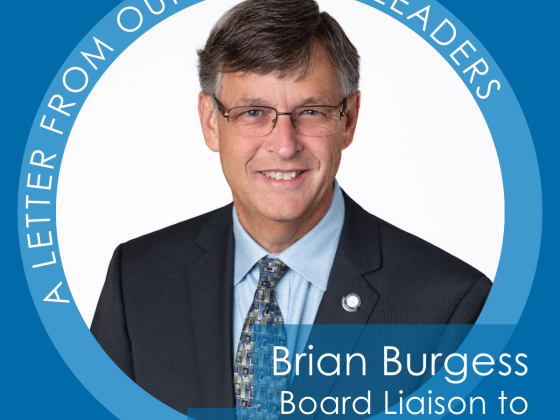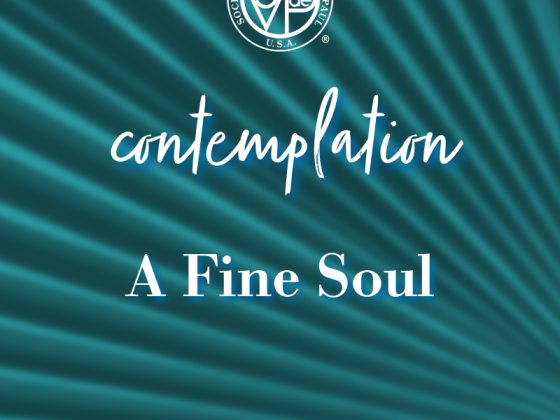By Timothy Williams, Senior Director of Formation and Leadership Development
When driving on a long trip, we can easily let our minds become distracted by the radio, a phone call, or just our own thoughts and worries, causing us to miss a turn or an exit. We suddenly find ourselves in an unfamiliar place, wondering where we are, and how we got there. It can be easily agreed that when this happens, the worst thing to do would be to simply keep driving, rather than pulling over to figure out how we got here, and where to go next.
Yet how often, in the spiritual journey of our lives, do we simply keep driving, without pausing to reflect on where we are and how we got here? What are the graces we’ve received, to what is God calling us? In our Vincentian Spirituality, we are taught that God speaks His will to us through the people and events of our lives. To fully discern His will then, requires that we not only be attentive to each moment and person we encounter, but that we take the time to reflect later about where they have led us, and with the knowledge we’ve gained since then, whether they can guide further on our journey.
“When you make these reflections on your interior state,” St Vincent wrote, “you must raise your mind to the consideration of His Adorable Goodness… keep your heart ready to receive the peace and joy of the Holy Spirit.” [CCD V:166] When we miss a turn, or fail to read a sign, our God waits patiently to point it out to us again, if only we take the time to look for Him.
All the many gifts we receive are meant to be shared, and so St. Elizabeth Ann Seton calls us “alone in the secret of your heart [to] reflect … what use have I made of the grace of my God?” [CW 3, 262] When Frédéric considered his many gifts – his parents, his education, his many friends – he saw that “often I am led to reflect that it wishes from me something more than common virtue…” [97, to Curnier, 1835]
Guiding each other through the wilderness, we close our eyes from time to time, recalling each turn, each landmark, each indication of our progress and our destination. “It is not enough to take a superficial glance,” Frédéric said, “you need repeated reflection.” [34, to Falconnet, 1834] And so, while our individual reflection is vital, we also reflect together in our Conference meetings, not only on the readings we may share, but on our personal journeys towards God. We share our path, our direction, and our progress with one another in the hopes that we may all arrive together at the Kingdom to which we are called.
It is not our own will we seek to discern, but God’s will for us. To do that, we must “pull over” from time to time. As St Louise said, “The time has surely come for me to reflect on myself in the sight of God.” [SWLM, L.110]
Contemplate
Do I “pull over” often enough to reflect on where I have been, and where I am going?
Recommended Reading
Contemplación. Ten tú corazón listo.
Cuando conducimos en un viaje largo, podemos fácilmente dejar que nuestra mente se distraiga con la radio,una llamada telefónica o simplemente con nuestros propios pensamientos y preocupaciones, lo que nos hace perder un giro o una salida. De repente nos encontramos en un lugar desconocido y nos preguntamos donde estamos y cómo llegamos allí. Se puede fácilmente acordar que cuando esto sucede, lo peor que se puede hacer sería simplemente seguir conduciendo, en lugar de detenerse para descubrir cómo llegamos aquí y adonde ir a continuación.
Sin embargo ¿Con qué frecuencia, en el viaje espiritual de nuestras vidas, simplemente seguimos conduciendo, sin detenernos a reflexionar sobre donde estamos y cómo llegamos hasta aquí? ¿Cuáles son las gracias que hemos recibido, a qué nos llama Dios? En nuestra espiritualidad Vicentina, se nos enseña que Dios nos dice su voluntad a través de las personas y los acontecimientos de nuestras vidas. Entonces, discernir plenamente su voluntad requiere que no sólo estemos atentos a cada monento y a cada persona con la que nos encontramos, sino que nos tomemos el tiempo para reflexionar más tarde sobre hacia donde nos ha llevado, y con el conocimiento que hemos adquirido desde entonces, si ellos pueden guiarnos más en nuestro viaje.
“Cuando hagas estas reflexiones sobre tu estado interior,” escribió San Vicente, “debes elevar tú mente a la consideración de su Adorable Bondad, manten tú corazón dispuesto a recibir la paz y la alegría del Espíritu Santo.” (CCD V:166) Cuando perdemos un giro, o no leemos una señal, Nuestro Dios espera pacientemente para indicarnoslo nuevamente, si tan sólo nos tomamos el tiempo para buscarlo.
Todos los muchos regalos que recibimos están destinados a ser compartidos, y por eso Santa Isabel Ann Seton, nos llama “solos en el secreto de su corazón (para) reflexionar ¿qué uso he hecho de la gracia de mi Dios?” (CW 3, 262) Cuándo Frederic consideró sus muchos dones, sus padres, su educación, sus muchos amigos – vio que a menudo, me veo llevado a reflexionar que desea de mí algo más que la virtud común.
Guiándonos unos a otros a través de la naturaleza, cerramos los ojos de ves en cuando, recordando cada giro, cada punto de referencia, cada indicación de nuestro progreso y nuestro destino.” No basta con echar una mirada superficial” Frederic dijo: “es necesario reflexionar repetidamente” (34, a Falconnet, 1834 ) y así, si bien nuestra reflexión individual es vital, también reflexionamos juntos en nuestras reuniones de la Conferencia. no sólo sobre las lecturas que podemos compartir, sino también sobre nuestro camino. nuestra dirección y nuestro progreso unos con otros con la esperanza de que todos podamos llegar juntos al Reino, al que estamos llamados.
No es nuestra propia voluntad lo que buscamos discernir; sino la voluntad de Dios para nosotros. Para ello, debemos “detenernos” de ves en cuando. Como dijo Santa Luisa “seguramente ha llegado el momento de reflexionar sobre mi misma ante los ojos de Dios” (SWLM, L 110)
Contemplar
¿Me “”detengo”” con suficiente frecuencia para reflexionar sobre dónde he estado y hacia donde voy?




I really enjoy reading this reflections and today’s especially spoke to me as I am in a transition time –
things are changing and I have decisions to make etc. This reminded me to turn to the Lord for the
answers I seek. As I pray for more wisdom and clarity and process through one day at a time, things
become clearer. I am limited in who I can share this with which makes it a tad more difficult but also
reminds me to lean on Jesus and His Spirit as my guide knowing that the Father has me in the palm
of His hand.
Marianne